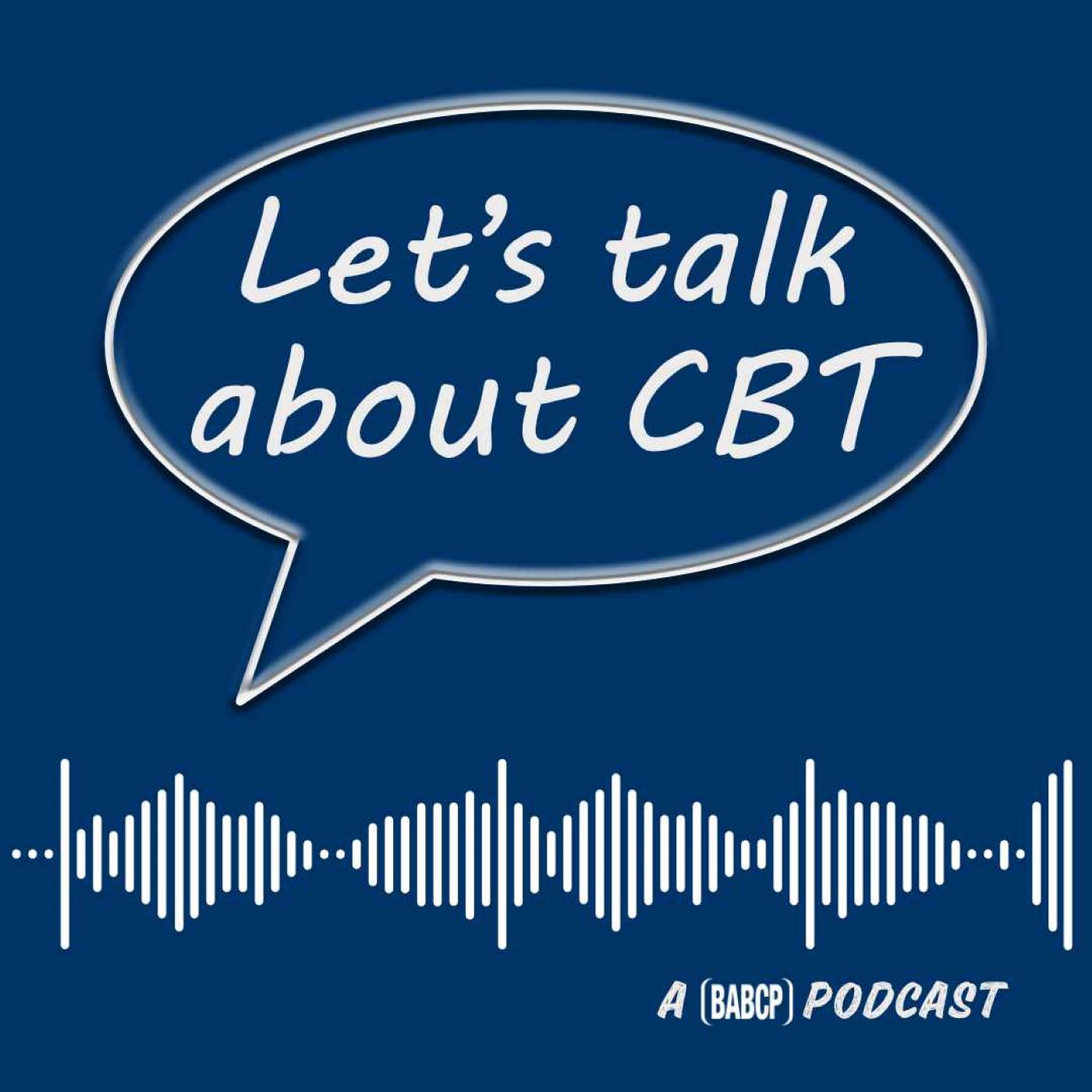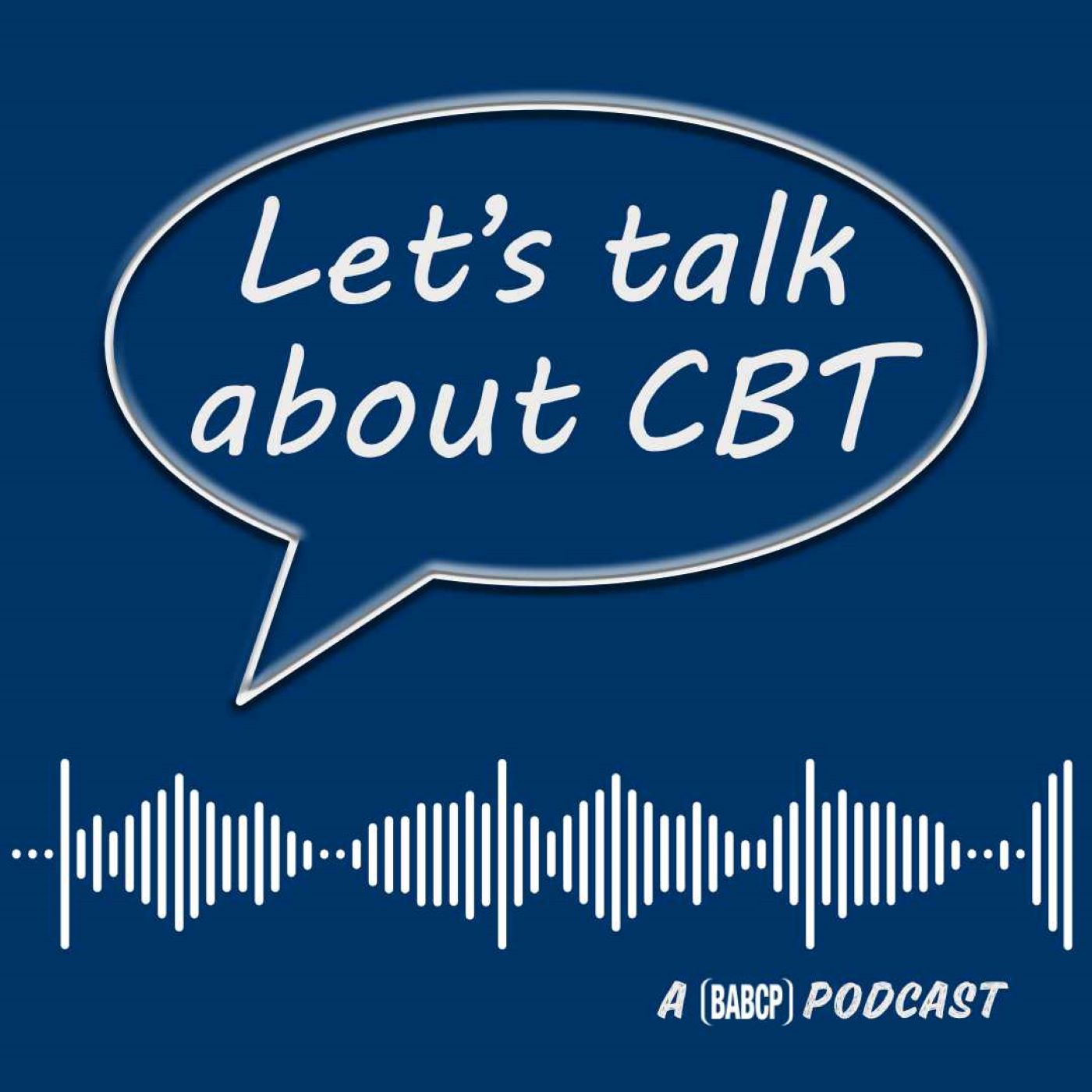Let’s talk about…how getting active, being in nature and having CBT can help after you’ve had a baby
Description
In this episode of Let’s Talk About CBT, host Helen Macdonald speaks with Sarah, Sally, and Leanne about Sarah’s experience of having Cognitive Behavioural Therapy (CBT) after giving birth. They explore how CBT helped Sarah regain control during a challenging postnatal period, addressing struggles such as insomnia, anxiety, and adjusting to new motherhood.
Sarah shares her journey of balancing therapy with the therapeutic benefits of movement and time spent in nature. CBT therapists Sally and Leanne discuss the powerful combination of therapy, physical activity, and connecting with nature for improving mental health.
Useful links:
NHS Choices- Insomnia-https://www.nhs.uk/conditions/insomnia/
NHS Guidance on feeling depressed after childbirth: https://www.nhs.uk/conditions/baby/support-and-services/feeling-depressed-after-childbirth/
MIND information on how nature can help mental health: https://www.mind.org.uk/information-support/tips-for-everyday-living/nature-and-mental-health/how-nature-benefits-mental-health/
For more on CBT the BABCP website is www.babcp.com
Accredited therapists can be found at www.cbtregisteruk.com
Listen to more episodes from Let’s Talk About CBT here.
Credits:
Music is Autmn Coffee by Bosnow from Uppbeat
Music from #Uppbeat (free for Creators!): https://uppbeat.io/t/bosnow/autumn-coffee
License code: 3F32NRBYH67P5MIF
This episode was produced and edited by Steph Curnow
Transcript:
Helen: Hello, and welcome to Let's Talk About CBT, the podcast where we talk about cognitive and behavioural psychotherapies, what they are, what they can do, and what they can't. I'm Helen MacDonald, your host. I'm the senior clinical advisor for the British Association for Behavioural and Cognitive Psychotherapies
Today I'm very pleased to have Sarah, Sally and Leanne here to talk with me about having CBT, in Sarah's case, when you've recently had a baby and also the value of getting more active and getting outside into nature and how that can help when you're also having CBT. Sarah, would you like to introduce yourself, please?
Sarah: Hi, I'm Sarah. I'm, 37 from Sheffield and like I said, just recently had a baby, and she's absolutely wonderful. She is a happy, loud little bundle of joy. I ended up having CBT though, because the experience of having the baby wasn't what I thought it was going to be, I think is the reason. And I, just went a little bit mad, so I got some help. Yeah, I'm normally a very happy, positive, active person. Lots of friends, very sociable, always like to be doing things, always like to be in control and have a plan. I like to know what I'm doing and what everyone else is doing. And all that changed a little bit and I didn't really know what to do about it. So yeah, got some therapy.
Helen: Thank you Sarah. So, we'll talk with you a bit more about what that was like. And first, Sally, would you like to just briefly say who you are?
Sally: Yeah, so I'm, my name's Sally. I am a Cognitive Behavioural Therapist, working both in the NHS and in, in private practice at the moment.
Helen: Thank you. And Leanne,
Leanne: Hi, I'm Leanne. and I'm a cognitive behavioural therapist as well. And I also work in the NHS and in private practice with Sally.
Helen: Thank you all very much. What we're going to do is ask Sarah to tell us a bit more about, when you use the term mad, perhaps I could ask you to say a little bit more about what was happening for you that made you look for some therapy.
Sarah: Wel the short answer to that is I developed insomnia about 12 weeks postnatally, didn't sleep for five days. Baby was sleeping better than most, you know, so it was equally frustrating because there was no real reason I didn't think that I should be awake. And sleep obviously is very important when you've had a baby. As I said, I like to be in control, like to prepare, like to know what's going on. So I did hypnobirthing, I prepared, I planned, I packed the biggest suitcase for this birth of this baby that I was really excited for and I thought I'd prepared mentally for every eventuality- what kind of birth, what would happen afterwards, but all very physical because they're the sorts of things that I could understand and imagine. And basically I ended up having an emergency C section, which in the moment I was fine with and I didn't think I was bothered by it, but the level of pain afterwards, that then again affected my level of control over looking after the baby. And the level of debilitation it created that I wasn't expecting- this is the key thing, I wasn't expecting it. That meant that I wasn't able to be me, really. I wasn't able to not least look after a baby, but get myself dressed, get myself showered, walk to the shop, drive a car, play netball, walk my dog. And I wasn't able to do any of that. I didn't appreciate that I was struggling with that, with accepting that. And because it went on for so long, and of course with this comes the baby blues that everyone talks about, but that's meant to only last apparently a couple of weeks. I, you know, you kind of just think, oh, well, I feel all this. I feel pain. I feel sad. I can't stop crying. But all that's meant to happen, all that's normal and it's sort of became the norm. So I was like, well, this is normal. This is how I'm going to feel forever.
At this point I didn't have insomnia. I just could not stop crying. And I mean, like I couldn't, I didn't talk to anyone for two days at one point, because I knew if I opened my mouth to say anything, I would start crying. Like literally anything, I would just start crying. What the clincher for me was when I spoke to a doctor, I thought they were going to say get out and about, do some therapy, which at the time, I'm going to be honest, I thought, I can't sleep. I need a fix now. What I now know is I was doing a lot of behaviours that over time culminated in my body going, you're not listening to me, you're not well. Right I need to do something physical so that you wake up and do something about it. And that was the insomnia. So, I went to the doctor fully expecting them to say, do some mindfulness, do this, do that. And at that point I was just, you need to fix this now. I need to sleep. I need drugs. And yes, that's what they gave me, but they did say you need to do CBT- but what they did say what the first thing the doctor said was, you need antidepressants. Now, as a nurse working in GP surgery for them to jump all the self-help stuff and go take these tablets was like, Oh, right. I'm not okay. and it gave me that like allowance to say, I need to take tablets. But I already had said to myself, but I want to do not just mindfulness and helpfulness for myself. I want to do structured CBT because that way it is something I'm doing to give me back my control and I've got a plan.
And because I already knew CBT was wonderful. Yeah, I didn't really understand what it was, how it worked, the structure of it. And I get that there's different types for different problems. but I knew that's what I wanted to do, once I had tablets to help me sleep and knew the antidepressants were going to work eventually, which did take a while. I was at least doing something myself that would help me forever. And I just thought, what have I got to lose? I need to do something. And until I started CBT, basically, I just felt like I was running around in circles in the dark. And the CBT gave me control and focus and, right, this is what we're doing going that way. Because until I started CBT, you know, I was Googling everything. Right, I'll try this. Right, I'll try that. And because it didn't work within 24 hours, I'd then try something else and try something else. Now it was making it worse, obviously. So, to have the CBT and have my therapist say, do this one thing for a whole week. I was like, all right, okay. That's quite a long time, but there's obviously a reason.
Helen: Sarah, thank you for telling us all about that. What I'm hearing is that you had a combination of massive changes in your life, which will happen when you've had a baby, all sorts of things about the kind of person that you are, kind of added to all your really careful and sensible preparations for having this baby and then really being taken by surprise almo


















